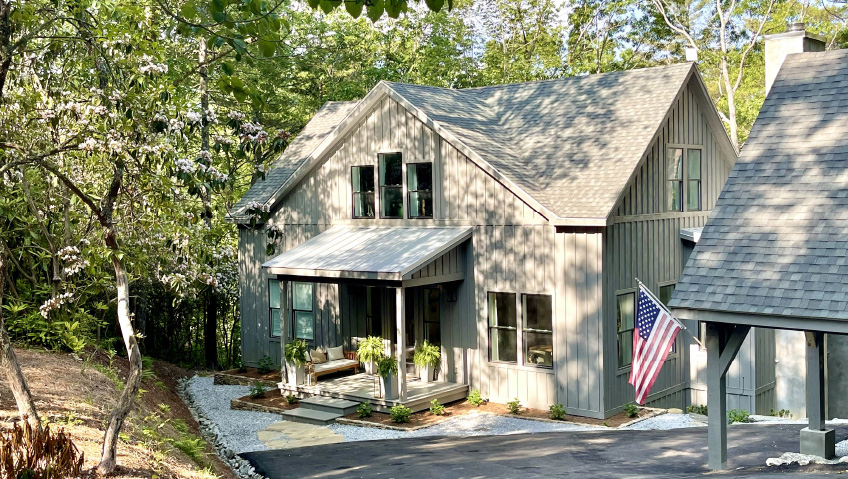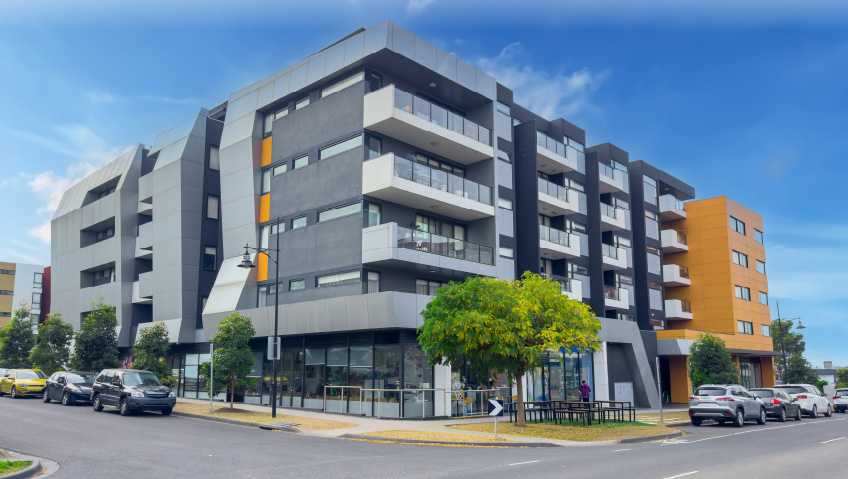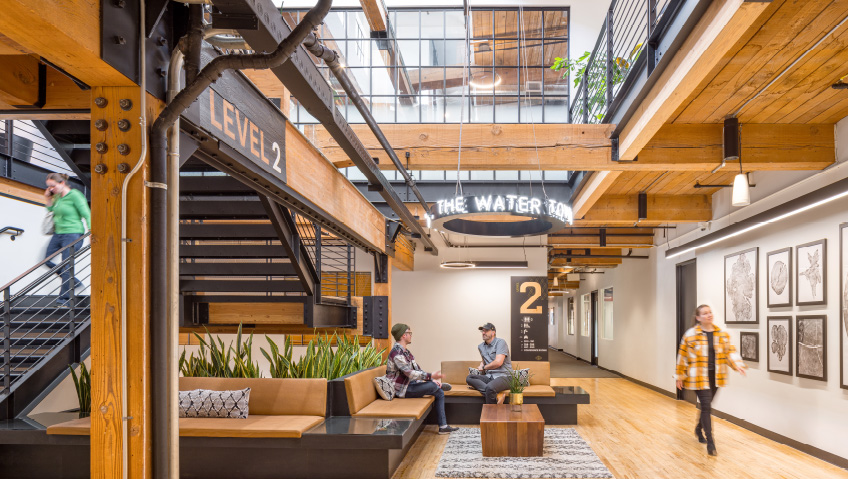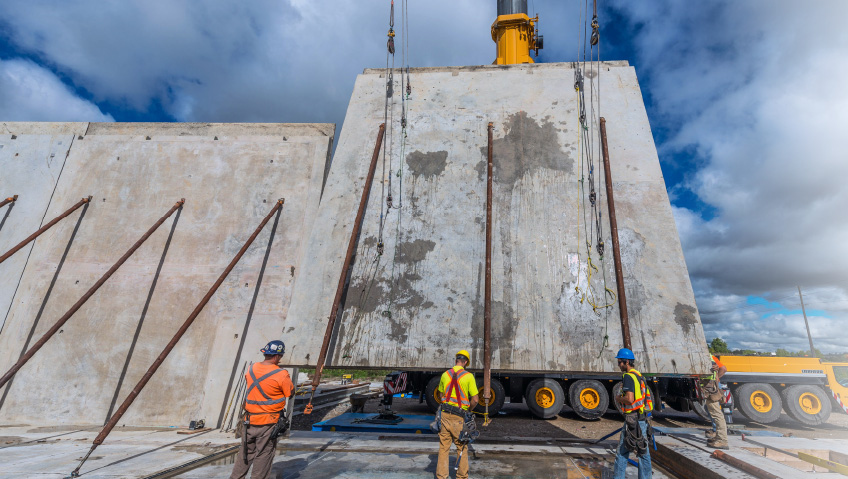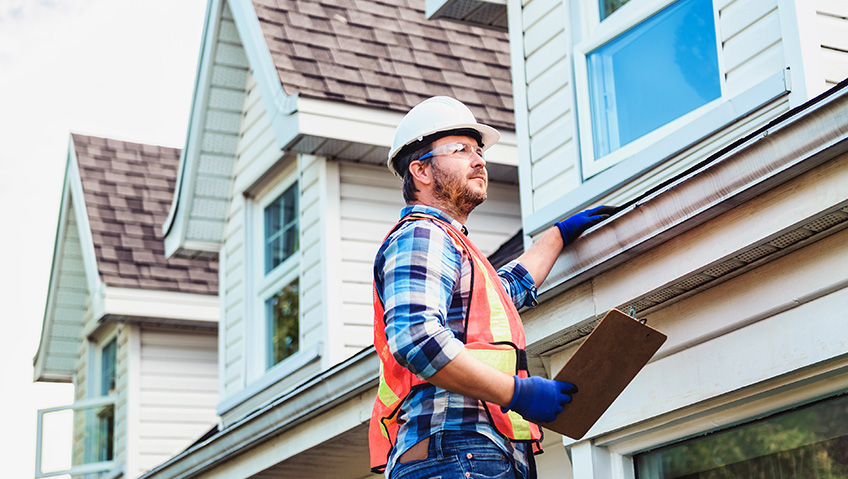Modular homes constructed in factories boast a variety of enduring benefits, a fact that Affinity is proud to share with its clients. Modular construction sits at the intersection of climate-resilient and energy-efficient components, simplified planning, design, and funding services, and a thorough understanding of coastal and state-specific regulations. Units are constructed in a controlled setting, with modular buildings erected on permanent foundations and constructed in accordance with the same building codes as conventional site-built construction.
Every Affinity home meets the U.S. Department of Energy’s Zero Energy Ready Home (ZERH) Standards, boasts industry-leading energy efficiency, and is structurally resilient enough to withstand wind speeds of up to 180 mph.
A factory-built approach means constructing indoors, without weather delays and on a shorter schedule from start to finish. Without incurring additional costs, Affinity can construct faster with better tolerances and with far greater energy efficiency and climate resilience. Affinity professionals use a simplified, automated approach to planning, design, and process management to train and assist builders from project conception to completion, all resulting in the best possible house with a variety of high-end design and finish options.
Established in 2009 in Lakeland, Georgia, Affinity, a Vantem Company, supplies single-family, multi-family, and commercial buildings to more than 75 independent approved builders and developers in the Southeast, including Florida, Georgia, Alabama, Mississippi, Louisiana, South Carolina, North Carolina, and Tennessee. With more than 1,000 satisfied clients having benefited from more than 2.2 million square feet of installed space, and with advancements and enhancements made with the assistance of parent company, Vantem, Affinity can now proudly create more than three million square feet annually.
“Affinity has a strong track record of building high-quality, climate-resilient homes—and that foundation has been key to our 15-year milestone,” says Vantem CEO Chris Anderson. “This year, we reached another major achievement: building and delivering our one-thousandth home in the Southeastern U.S.”
When Affinity was brought into the Vantem family, it was clear that the factory had the right people, the right processes, and a deep understanding of what today’s homebuyers need, especially in the Southeast, he adds. “We saw an opportunity to build on that success, adding Vantem expertise in areas such as increased energy efficiency and management systems. We’re proud to say that at this 15-year anniversary, Affinity is delivering more homes than ever, and they are more comfortable and energy-efficient than any other homes in the market.”
As part of the Vantem family, the company is focused on transforming how housing is built—not just in modular, but across the broader construction landscape—and Affinity plays an important role in that vision. By integrating Affinity into Vantem’s network as the single-family housing solution, alongside other companies, the group has been able to deliver smarter, faster, and more sustainable housing solutions at scale.
Sustainable housing means Zero Energy Ready Homes, and over the past year, Affinity has made great strides in this area by building homes that meet these standards. “This puts us in the lead against any other modular builder and among a small group of elite builders nationwide operating at that level of performance,” Anderson says. “And it’s exactly the kind of forward-thinking approach we encourage across all of our companies.”
Delivering energy-efficient housing without a premium cost is a core goal for Vantem, he adds, and the new ZERH homes being built meet that goal.
The importance of maintaining sustainability both at the company and within the industry is also evident in the newly installed solar panels at Affinity’s own facility, a move that aligns with Vantem’s broader commitment to sustainability. “We believe the path to decarbonizing housing starts not just with the homes themselves, but also with how they’re built,” Anderson says. “Making our operations more energy-efficient is one way we’re leading by example.”
Factory-built construction is already a more sustainable method of building, he adds. It produces less waste, uses materials more efficiently, and takes place in a controlled environment that minimizes energy use during production. Adding solar panels was a natural next step in that process. “We’re proud of that investment, and we see it as just one piece of a larger strategy to improve the sustainability profile of our entire supply chain and production network.”
In terms of current and upcoming projects, the company is producing units that will serve as standalone housing on resort properties, an innovative use of modular construction that allows developers to stay on schedule, reduce site disruption, and confidently plan around fixed delivery dates.
“These homes are built to the same standards as our traditional residential offerings and reflect the flexibility of factory-built housing to meet a wide range of market needs,” Anderson says. “We’re excited to see these projects take shape later this year.”
Affinity’s ongoing commitment to building design and sustainability has resulted in significant recognition in the industry, particularly with a 2024 MHBA (Modular Home Builders Association) Award. “We were thrilled and honored when Affinity received the 2024 MHBA Home of the Year Award,” says Anderson. “Not just because of the recognition, but because it reflects the level of care and quality that go into every home we build.”
He also wants to take a moment to recognize how important the Modular Home Builders Association is to the industry. “It’s incredibly valuable to have an organization that advocates for modular construction, engages with policymakers, conducts research, and pushes the broader construction conversation forward,” he says. “We’re proud to be a member, and receiving this award from such a respected organization means a great deal to us.”
That said, the company wouldn’t be what it is without the partnerships that bring its homes to fruition, especially its builder network that plays a vital role in finishing Affinity products with craftsmanship worthy of winning awards. The home that received the 2024 award—located in Cashiers, North Carolina—is a perfect example.
“Set against a mountain landscape, it was beautifully completed by one of our highly respected builders, featuring custom finishes that elevated every detail,” Anderson says. “It’s a great reminder that modular construction isn’t limited in style or sophistication—and it’s our builders who help bring that full vision to life.”
When it comes to challenges, like many businesses in the industry, Affinity has navigated supply chain disruptions, evolving energy codes, and rising material costs—all while scaling to meet growing demand. “But those challenges have pushed us to be more agile, more efficient, and more strategic,” says Anderson. “At Affinity, we’ve worked closely with the team to streamline operations, elevate energy performance, and take meaningful steps to enhance the overall quality of our product.”
One example is a recent effort to raise the standard offering in the homes: increasing ceiling heights, improving trim packages, and upgrading product brands to reflect the level of quality Affinity is known for. “These aren’t just upgrades; they’re part of a long-term strategy to deliver more value and a better living experience through increased comfort in the homes our customers deserve.”
Looking ahead, Affinity is focused on expanding the impact of its single-family housing solutions, and will continue to play a key role in that arena as it refines offerings, increases capacity, and continues investing in smart building practices. “One major milestone we’re preparing for is the introduction of new product lines that deliver on comfort, performance, and value,” Anderson adds. “That’s all part of our broader effort to make high-quality, energy-efficient homes more accessible.”
Indeed, Affinity’s ability to take a “solutions-based” approach to solving the housing challenge is particularly noteworthy. By partnering with builders and developers, Affinity can provide the customized solutions they need to be successful—building homes that can withstand wind speeds of 180+ mph in coastal markets, for example. By being part of the Vantem family, Affinity also counts on the support of a strong organization with deep experience in the sector.
“We’ve made a conscious effort to raise the bar on what homeowners can expect from a factory-built home,” says Anderson. From higher ceilings to upgraded finish packages and brand-name product integrations, Affinity’s goal is to deliver homes that don’t just meet expectations—they exceed them. “That level of quality, combined with energy efficiency and scalability, is what continues to differentiate us in the market.”

